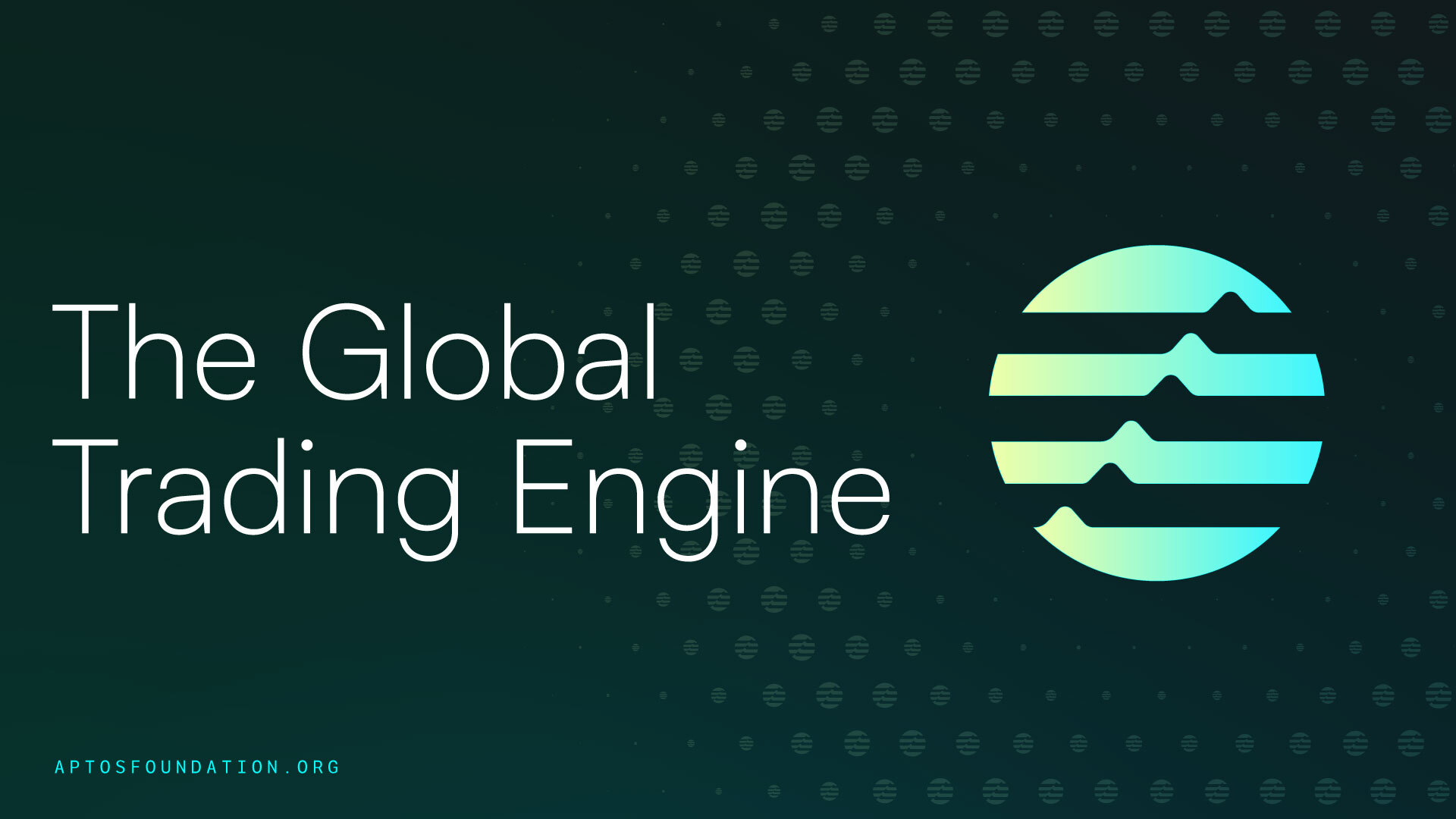The Rise of the Global Trading Engine (Part 1)

They’re limited by time zones, outdated rails, and costly intermediaries. Billions are left out, and even those “in” face friction at every turn. It's 2025, and we're still running trillion-dollar markets on infrastructure designed for a pre-internet world.
It’s time for something better. To power a truly global financial system, we need a new foundation: a Global Trading Engine.
Runs 24/7, no matter the time zone
Settles instantly, not in days
Gives anyone, anywhere a chance to participate
Handles any asset—from stablecoins to tokenized real estate
This is Part One of a broader look at what it takes to build a true global trading engine—starting with the infrastructure layer. Before markets can be reinvented, they need a tech foundation that can actually support them.
A Season of Real Momentum
The Aptos ecosystem has been steadily building toward a future where value can move as freely as information. That vision is no longer theoretical—it’s taking shape in real time.
In Q1, the total stablecoin market cap on Aptos surpassed $1 billion for the first time— more than 10x increase year-over-year, and a 3x increase since December. With USDT, USDC, and USDe all live, Aptos is home to the top three stablecoins by market cap.
It’s not just crypto-native capital flowing into the network. BlackRock, the world’s largest asset manager, launched its USD Institutional Digital Liquidity Fund (BUIDL) on Aptos. Franklin Templeton’s OnChain U.S. Government Money Fund (FOBXX) is also live. And Bitwise included Aptos in its ETP, opening the door to broader institutional access and quicker mainstream adoption.
Liquidity is flowing in and so are the builders. Backed by $200M+ in Foundation grants and programs, the ecosystem is expanding rapidly, drawing in top developers and entrepreneurs from around the world.
Innovation that Never Sleeps
Underneath it all is the tech that makes it possible. With 150ms block times, ~650ms user latency, and instant finality even at 11,000+ TPS, Aptos is already one of the most performant L1s live today. And with average transaction fees under a hundredth of a cent, that performance is accessible to real everyday users.
But the network isn’t standing still. A wave of upcoming AIPs—shaped by the community—are set to push scalability and speed even further:
Raptr is a next-gen consensus protocol designed to deliver ultra-low latency in optimal conditions, while staying resilient under stress or attack.
Zaptos reimagines the transaction pipeline by overlapping consensus, execution, and storage—unlocking deeper parallelism and pushing latency to its absolute minimum.
Block-STM V2 enhances Aptos’ signature execution engine, scaling throughput with increased hardware efficiency. Even a single node can handle massive transaction volumes—laying the groundwork for horizontal scale at a global level.
Tiered Storage keeps frequently accessed data in high-speed memory (hot tier), while less-used state lives on disk (cold tier).
Execution Pool acts as a buffer between consensus and execution. It intelligently extracts maximum parallelism from transactions and ensures that sequential workloads don’t clog block space. The result: smooth, predictable network performance even under heavy load.
These performance upgrades aren’t just optimizations—they’re what make a global trading engine truly work at scale.
Making Web3 Feel Like Web2 (But Better)
It’s not just about performance; it’s about people. The next billion users won’t care about TPS, they’ll care that it works.
The Aptos developer ecosystem is building that experience: one where users interact with dApps as naturally as they do with any Web2 app. By removing the friction—like managing keys or navigating complex DeFi mechanics—Aptos makes web3 accessible to everyone, not just the natives. Many of these are already live or moving through the AIP process.
Account Abstraction: Users can define their own authentication logic through smart-contract based accounts—enabling multi-sig accounts, sandboxed wallets for risk management, and delegated permissions for trusted apps.
Permissioned Signer: Enables granular permissions for authentication logic, so you can have condition-based auto-signing and AI-powered wallets. This opens the door to more intelligent automation without compromising security.
Stateless Accounts: Makes it cheaper and easier to scale, especially for dApps like DEXs that need to spin up lots of isolated user accounts.
Meanwhile, Aptos Labs products like Petra and Aptos Connect are coming together to streamline the user journey, with features like Petra Earn for USDC, recurring deposits, and a fully refreshed experience. And for developers, Aptos Build will offer no-code indexing, gas station support, and plug-and-play infra for launching DeFi-ready apps.
Slowly, Then All at Once
The future of finance isn’t just faster—it’s a full reimagining of how value moves across the global economy. With Aptos, that vision is becoming reality: the Global Trading Engine powering tomorrow’s financial world. Slowly at first. Then all at once.
Stay tuned for Part Two, where we’ll spotlight the projects across the Aptos ecosystem that are bringing this engine to life.